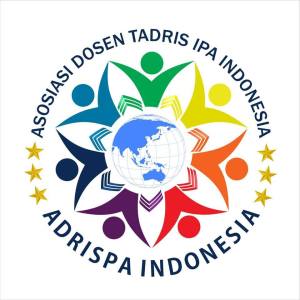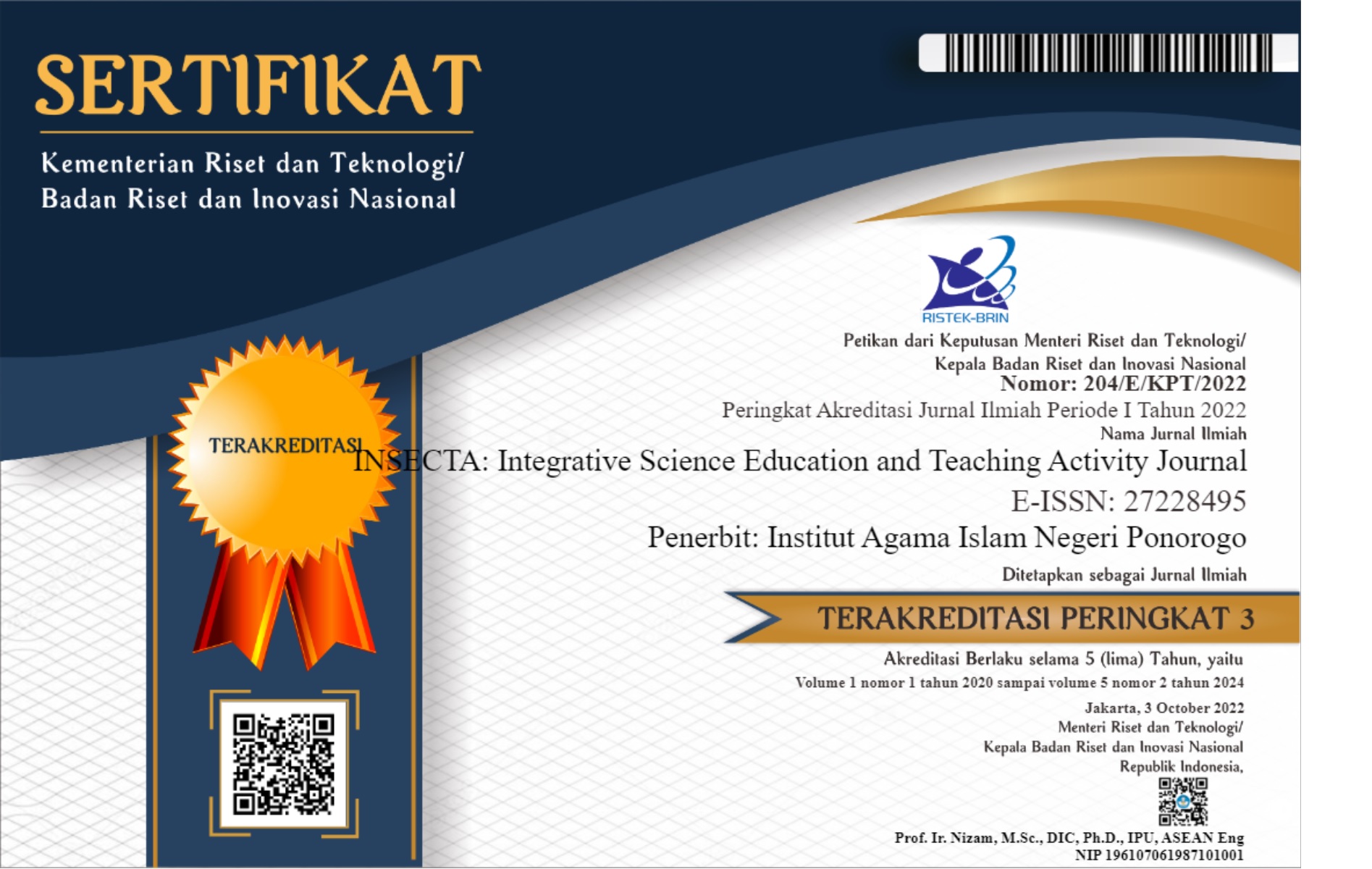PEDAGOGICAL USE OF DRAMATIC PERFORMANCE THROUGH SCIENCE SUBJECT FOR PEACE EDUCATION IN PARAGUAY
DOI:
https://doi.org/10.21154/insecta.v1i2.2182Keywords:
Pedagogy, Dramatic, Performance, Peace EducationAbstract
This research aims to change the effective learning process and encourage students to be more active and creative. As the main objective of MEC (2005), to educate students to become competent members of society as a product of one of the dimensions of science. Research focuses on drama as a method for teaching values and attitudes in education in Paraguay, where values and attitudes must be taught in science subjects because values and attitude are part of basic training every student and schools have a responsibility to achieve these goals as the main goal of the entire education system. Values and attitudes can be represented such as awareness-raising, tolerance, inclusion, and community sustainability. The studies analyzed relate to ways to make drama performances, as a pedagogic practice, that teachers can use in enlarging students’ science abilities such as student behavior and attitudes to become promoters of peace education. In this case, explicitly focusing on Dramatic Performance (DP) as a pedagogic tool to emphasize the teaching of values in science lessons. This study sees drama as an artistic expression that can be developed easily by teachers of various levels and can be applied in all subjects as a fun learning strategy. Through interviews, strong evidence is found that learning with drama helps teachers make the classroom more dynamic, fun, and participatory. In addition, this kind of method increases students’ curiosity, motivating them to participate actively in the learning process.
References
Bailey, C. H., & Watson, R. (1998). Establishing basic ecologic understanding in younger pupils: A pilot evaluation of a strategy based on drama/role play. International Journal of Science Education, 20, 139-152.
Girod, M., & Wong, D. (2001). An aesthetic (Deweyan) perspective on science learning: Case studies of three fourth graders. The Elementary School Journal, 102(3), 199-224. http://dx.doi.org/10.1086/499700
Güner, P., & Uygun, T. (2016). Investigation of Learning in Creative Drama-based Classrooms through Community of Practice. 5(2), 557.
Heikkinen, H. M. (2016). Drama and citizenship-devised drama for education. Journal of Social Science Education, 15(4), 32”“39. https://doi.org/10.2390/jsse-v15-i4-1497
Lerman, Z. M. (2005). Chemistry: An inspiration for theater and dance. Chemical Education International, 6 (1), 1-5.
Malm, B., & Löfgren, H. (2007). Empowering students to handle conflicts through the use of drama. Journal of Peace Education, 4(1), 1”“20.
MEC. (2011). Plan Nacional de Educación 2024. Hacia el centenario de la Escuela Nueva de Ramón Indalecio Cardozo. Ministry of Education of Paraguay.
Najami. N., Hugerat, M., KHALIL, K., & Hofstein, A.(2019). Effectiveness of teaching science by drama . creatie education, 10, 97-110. DOI: 10.4236/ce.2019.101007
Odegaard, M. (2003). Dramatic science: A criticial review of drama in science education. Studies in Science Education, 39, 75-102.
Okvuran, A. (2014). Sustainability in Drama. Creative Education, 05(19), 1720”“1724. https://doi.org/10.4236/ce.2014.519191.
Osama, H. A. (2016). Drama-based science teaching and its effect on students’ understanding of scientific concepts and their attitudes towards science learning. International education studies, 9(10) 163-173. DOI: doi:10.5539/ies.v9n10p163
Roy, D., & Ladwig, J. (2015). Identity and the Arts: Using Drama and Masks as a Pedagogical Tool to Support Identity Development in Adolescence. Creative Education. 6(10), 907
Schonmann, S. (2000). Playing peace: School performance as an aesthetic mode of knowing. Contemporary Theatre Review, 10(2), 45”“60.
Smyrnaiou. Z. &. E. Georgakopoulou. (2017). The Learning Science Through Theatre initiative in the context of Responsible Research and Innovation. Systemicts, cybernetics and infomatics journal, 15(5), 15-22.
Song, Y. I. K. (2012). Educating for peace: A case study of a constructivist approach to understanding peace through artistic expression. Creative Education, 3(01), 79.
Tveita, J. (1996). The drama model of electricity. 8th IOSTE Symposium. Edmonton, Canada
UNESCO. (2016). Learning to live together sustainably: Trends and Progress. https://en.unesco.org/themes/gced/sdg47progress
UNESCO. G. C. E. (2015). What is global citizenship education?. https://en.unesco.org/themes/gced/definition
Yoon, H. (2004). Science education using science drama. Proceedings of the 46th conference of The Korean Association for Research in Science Education (pp. 26-43). Korean.








